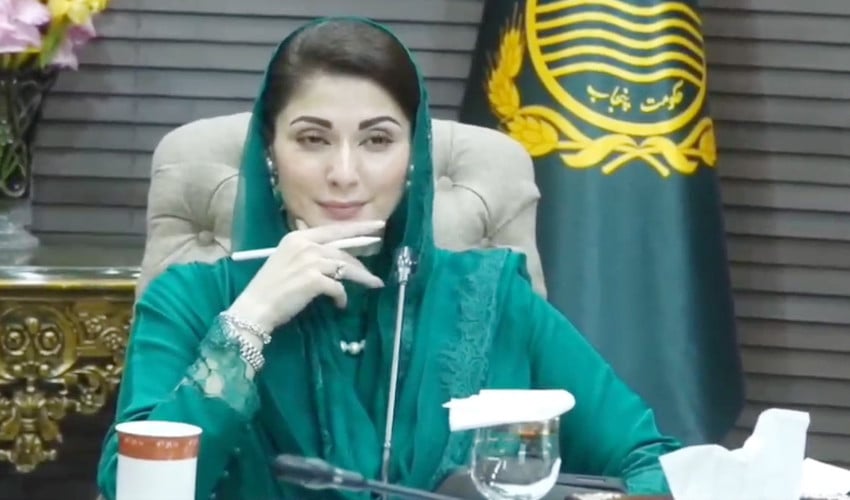Punjab Chief Minister Maryam Nawaz Sharif chaired a significant high-level meeting to review and revamp the province’s higher education system. The session included a comprehensive briefing from the Higher Education Department and concluded with the approval of a sweeping set of initiatives aimed at raising academic standards, institutional governance, global integration, and student development.
This strategic transformation marks a historic shift in Punjab’s academic policy, blending local empowerment with global collaboration.
Model Universities Announced
Three major public universities in Punjab have been selected to become model educational institutions:
- Government College University (GCU)
- Government College for Women University
- University of Engineering and Technology (UET)
These institutions will serve as benchmarks for academic excellence and administrative innovation, driving forward a culture of performance and quality in higher education.
Global Universities Show Interest in Punjab Campuses
A groundbreaking development in the meeting was the expression of interest by foreign universities to establish their branch campuses in Punjab. Notable institutions proposing campus setups include:
- University of London
- Brunel University
- University of Gloucestershire
- University of Leicester
Other universities from the United Kingdom, South Korea, and Kazakhstan have also shown serious interest in expanding their presence to Punjab, opening doors for international collaboration, curriculum alignment, and student exchange programs.
Governance Reforms and KPI-Based Evaluation
The Chief Minister approved the introduction of College Management Councils in Punjab’s public colleges to ensure decentralized, transparent, and efficient administration.
A Key Performance Indicator (KPI) system will be implemented across all universities in Punjab to monitor and assess:
- Teaching quality
- Research productivity
- Administrative performance
- Innovation and creativity
University vice chancellors will now be evaluated based on these KPIs. Underperforming colleges will be subject to review, and a comprehensive performance report has been demanded from relevant departments.
Education Vigilance Squad Approved
In a major step toward institutional discipline and monitoring, CM Maryam Nawaz approved the formation of an Education Vigilance Squad. This squad will:
- Conduct unannounced visits to educational institutions
- Inspect attendance records, cleanliness, and academic quality
- Report directly to the Education Minister
- Trigger immediate corrective action based on findings
This initiative aims to bring real-time accountability and enforce strict standards across public-sector colleges and universities.
Academic Ranking and Innovation Emphasis
To promote academic competition, a university ranking framework will be introduced with color-coded categories:
- Green – Top-performing
- Blue – Performing
- Yellow – Needs improvement
- Grey – Underperforming
Universities will be rated on metrics such as faculty performance, student satisfaction, curriculum modernization, and global networking.
Student-Focused Initiatives
The meeting included a progress briefing on two key student initiatives:
- CM Punjab Honhaar Scholarship Program
- CM Punjab Laptop Scheme
Over 19,000 students from other provinces have already applied under the CM Punjab schemes, reflecting wide-scale national interest and trust in Punjab’s education leadership.
Strategic Education Roadmap 2025–2029 Reviewed
The meeting also reviewed the Higher Education Strategic Plan 2025–2029, which outlines long-term reforms focused on:
- Institutional autonomy and governance reforms
- Digital transformation across campuses
- Global linkages for student mobility and research partnerships
- Capacity-building and human resource development in academia
- Quality teaching, creative research, and knowledge production
A proposal for organizing Punjab’s first-ever Higher Education Conference was also approved in principle, aimed at bringing together academic leaders, policymakers, and global experts under one roof.
CM Seeks Report on Inactive Commerce Colleges
CM Maryam Nawaz Sharif also ordered a detailed report on non-functional commerce colleges in Punjab. The move is part of her broader policy to revive dormant institutions, reallocate resources efficiently, and ensure that every educational establishment serves its intended public purpose.
Conclusion
This landmark meeting chaired by CM Maryam Nawaz represents a major leap toward an efficient, modern, and globally integrated higher education system in Punjab. With the introduction of KPIs, model institutions, foreign university collaborations, and an accountability-driven vigilance squad, Punjab is paving the way for a smarter, competitive academic ecosystem. These reforms not only raise the standard of education but also offer hope for students seeking world-class opportunities within their home province.



Comments (0)
No comments yet. Be the first to comment!
Leave a Comment